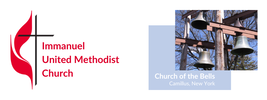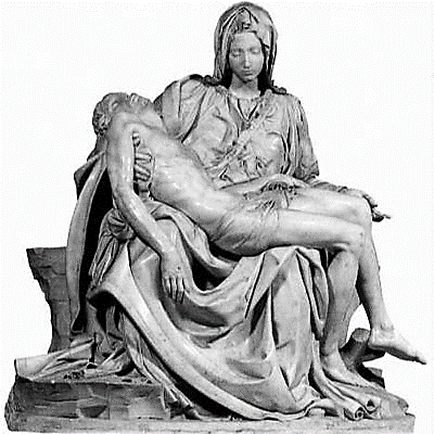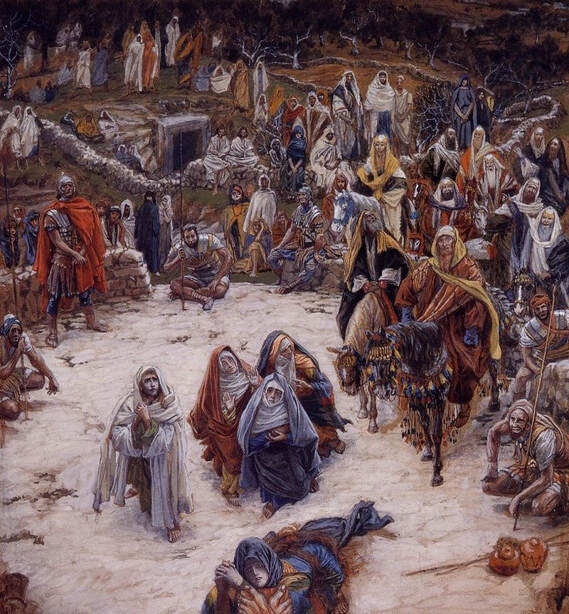
The First Word: "Father, Forgive them, for they do not know what they are doing." Luke 23: 32 - 35
Silent Meditation
Surely he should have raged at the sinner who nailed him to the tree.
Surely he should have raged at us for the evil we do, the evil we do both knowing and unknowing,
Yet compassion is there in the first words that he utters.
He intercedes for us before the Father.
Compassion that called him to take on human nature in his mother's womb,
Compassion that compelled him to the cross and held him there,
Compassion that bring incredible, unbelievable grace.
Compassion that echoes through the centuries to all who were not there over two thousand years, but who through their actions and words attempt to kill the loving grace-filled nature of Christ.
Compassion that cries out from the cross ...Father, Forgive them.....all of them...both then and now.
(Silence)
One: Lord, we remember that your first word was about us - all of humankind, those around
the cross two thousand years ago and we who gather around the cross around the
world today.
All: Forgive us our trespasses as we forgive those who trespass against us.
Silent Meditation
Surely he should have raged at the sinner who nailed him to the tree.
Surely he should have raged at us for the evil we do, the evil we do both knowing and unknowing,
Yet compassion is there in the first words that he utters.
He intercedes for us before the Father.
Compassion that called him to take on human nature in his mother's womb,
Compassion that compelled him to the cross and held him there,
Compassion that bring incredible, unbelievable grace.
Compassion that echoes through the centuries to all who were not there over two thousand years, but who through their actions and words attempt to kill the loving grace-filled nature of Christ.
Compassion that cries out from the cross ...Father, Forgive them.....all of them...both then and now.
(Silence)
One: Lord, we remember that your first word was about us - all of humankind, those around
the cross two thousand years ago and we who gather around the cross around the
world today.
All: Forgive us our trespasses as we forgive those who trespass against us.
|
The Third Word: “Woman, here is your son. Son, here is your mother." John 19: 25 -27
Silent Meditation Reflect on the Pieta by Michelangelo Who can grasp the grief? The grief of Mary watching her first born son suffer and die. And who can grasp the grief of the son? The son who sees his mother mourning at the foot of the cross -in inconsolable sorrow. What can he offer when he is gone? How can he help her? Comfort her? Provide for her? Honor her? Jesus said, "Woman, behold your son." Here is my disciple, my brother, my friend. One I love, to love you and for you to love. And to his disciple, he said, "Behold, your mother." Here is one I love, for you to love and to love you. (Silence) One: Lord Jesus - Savior and Redeemer, out of your great love for us, you suffered and died that we might be made whole. All: For Mary, you were Redeemer, Savior and son. We share and remember her sorrow. |
The Sixth Word: "It is finished."
John 19: 29 - 30
Meditation "O Sacred Head Now Wounded"
Read the words of this ancient hymn. The poem is said to have been written in the 11th century by a medieval monk named Bernard of Clairvaux, who served as abbot of a monastery in France. The poem originally contained many more verses each addressing various parts of Jesus' human body as he suffered on the cross including His feet, hands, side, breast, heart and face. "O Sacred Head Now Wounded" was the final part of this lengthy poem. Later it was sung to different tunes, but found its true home in the music of Bach's Passion Chorale.
(Silence)
O Sacred Head Now Wounded
1. O sacred Head,
now wounded,
with grief and
shame weighed down,
now scornfully
surrounded
with thorns,
thine only crown:
how pale thou art
with anguish,
with sore
abuse and scorn!
How does that
visage languish
which once was
bright as morn!
2. What thou, my Lord,
hast suffered
was all
for sinners’ gain;
mine, mine was
the transgression,
but thine
the deadly pain.
Lo, here I fall,
my Savior!
’Tis I deserve
thy place;
look on me
with thy favor,
vouchsafe to
me thy grace.
3. What language shall
I borrow
to thank thee,
dearest friend,
for this thy
dying sorrow,
thy pity
without end?
O make me
thine forever;
and should I
fainting be,
Lord, let me
never, never
outlive my
love for thee.
One: Lord, make me Thine forever and should I
fainting be,
All: Lord, let me never, never outlive my love
to Thee!
John 19: 29 - 30
Meditation "O Sacred Head Now Wounded"
Read the words of this ancient hymn. The poem is said to have been written in the 11th century by a medieval monk named Bernard of Clairvaux, who served as abbot of a monastery in France. The poem originally contained many more verses each addressing various parts of Jesus' human body as he suffered on the cross including His feet, hands, side, breast, heart and face. "O Sacred Head Now Wounded" was the final part of this lengthy poem. Later it was sung to different tunes, but found its true home in the music of Bach's Passion Chorale.
(Silence)
O Sacred Head Now Wounded
1. O sacred Head,
now wounded,
with grief and
shame weighed down,
now scornfully
surrounded
with thorns,
thine only crown:
how pale thou art
with anguish,
with sore
abuse and scorn!
How does that
visage languish
which once was
bright as morn!
2. What thou, my Lord,
hast suffered
was all
for sinners’ gain;
mine, mine was
the transgression,
but thine
the deadly pain.
Lo, here I fall,
my Savior!
’Tis I deserve
thy place;
look on me
with thy favor,
vouchsafe to
me thy grace.
3. What language shall
I borrow
to thank thee,
dearest friend,
for this thy
dying sorrow,
thy pity
without end?
O make me
thine forever;
and should I
fainting be,
Lord, let me
never, never
outlive my
love for thee.
One: Lord, make me Thine forever and should I
fainting be,
All: Lord, let me never, never outlive my love
to Thee!
The Seventh Word: "Father, into Your hands, I commit my spirit." Luke 23: 44 - 46
Silent Meditation Consider once again each of the seven words and the following prayer:
Merciful God, as we remember how your son Jesus bore our sins in his body on the cross and how seven times he spoke, seven words of love, we ask your blessing upon us as we remain here in prayer or depart for home or work. As we go on with our day, help us keep the meaning and the message that we have found here in this holy hour close in our hearts and minds so we might more fully understand and appreciate the mystery of your love and prepare to celebrate with even greater joy on Easter Sunday. Amen.
(Silence)
One: The true light that enlightens everyone came into the world through Christ.
All: Though the world was made through him, the world did not recognize him.
One: In him was life and his life was the light of all.
All: The light shines in the darkness and the darkness cannot overcome it.
Silent Meditation Consider once again each of the seven words and the following prayer:
Merciful God, as we remember how your son Jesus bore our sins in his body on the cross and how seven times he spoke, seven words of love, we ask your blessing upon us as we remain here in prayer or depart for home or work. As we go on with our day, help us keep the meaning and the message that we have found here in this holy hour close in our hearts and minds so we might more fully understand and appreciate the mystery of your love and prepare to celebrate with even greater joy on Easter Sunday. Amen.
(Silence)
One: The true light that enlightens everyone came into the world through Christ.
All: Though the world was made through him, the world did not recognize him.
One: In him was life and his life was the light of all.
All: The light shines in the darkness and the darkness cannot overcome it.
The Seven Last Words of Jesus
We come together to remember Jesus' three hours on the cross and reflect on his seven last words. Jesus surrounded himself with people who, like us, had failings and shortcomings. The events of Holy Week reveal the disciples' human nature and weaknesses. Judas betrays Jesus for a pocketful of coins; the disciples sleep while Jesus agonizes in the garden; Peter's anger causes him to take up a sword and strike the high priests slave and later out of fear, he denies that he is one of Jesus' followers; the chief priests act out of fear or jealousy of Jesus, and Pilate willingly hands over a man he believes to be innocent to be killed and perhaps most poignant of all, Jesus' own very human desire to have "this bitter cup pass from him." Is it possible that even today, our own human nature with its weaknesses and failings cause us also to betray, deny, convict and crucify again?
Let us begin....
The First Word: Luke 23:34 (NIV)
34 Jesus said, “Father, forgive them, for they do not know what they are doing.”[a] And they divided up his clothes by casting lots.
The Second Word: Luke 23:43 (NIV)
43 Jesus answered him, “Truly I tell you, today you will be with me in paradise.”
The Third Word: John 19:26-27 (NIV)
26 When Jesus saw his mother there, and the disciple whom he loved standing nearby, he said to her, “Woman,[a] here is your son,” 27 and to the disciple, “Here is your mother.” From that time on, this disciple took her into his home.
The Fourth Word: Mark 15:34 (NIV)
34 And at three in the afternoon Jesus cried out in a loud voice, “Eloi, Eloi, lema sabachthani?” (which means “My God, my God, why have you forsaken me?”).
The Fifth Word: John 19:28 (NIV) The Death of Jesus
28 Later, knowing that everything had now been finished, and so that Scripture would be fulfilled, Jesus said, “I am thirsty.”
The Sixth Word: John 19:30a (NIV)
30 When he had received the drink, Jesus said, “It is finished.” With that, he bowed his head and gave up his spirit.
The Seventh Word: Luke 23:46 (NIV)
46 Jesus called out with a loud voice, “Father, into your hands I commit my spirit.”[a] When he had said this, he breathed his last.
We come together to remember Jesus' three hours on the cross and reflect on his seven last words. Jesus surrounded himself with people who, like us, had failings and shortcomings. The events of Holy Week reveal the disciples' human nature and weaknesses. Judas betrays Jesus for a pocketful of coins; the disciples sleep while Jesus agonizes in the garden; Peter's anger causes him to take up a sword and strike the high priests slave and later out of fear, he denies that he is one of Jesus' followers; the chief priests act out of fear or jealousy of Jesus, and Pilate willingly hands over a man he believes to be innocent to be killed and perhaps most poignant of all, Jesus' own very human desire to have "this bitter cup pass from him." Is it possible that even today, our own human nature with its weaknesses and failings cause us also to betray, deny, convict and crucify again?
Let us begin....
The First Word: Luke 23:34 (NIV)
34 Jesus said, “Father, forgive them, for they do not know what they are doing.”[a] And they divided up his clothes by casting lots.
The Second Word: Luke 23:43 (NIV)
43 Jesus answered him, “Truly I tell you, today you will be with me in paradise.”
The Third Word: John 19:26-27 (NIV)
26 When Jesus saw his mother there, and the disciple whom he loved standing nearby, he said to her, “Woman,[a] here is your son,” 27 and to the disciple, “Here is your mother.” From that time on, this disciple took her into his home.
The Fourth Word: Mark 15:34 (NIV)
34 And at three in the afternoon Jesus cried out in a loud voice, “Eloi, Eloi, lema sabachthani?” (which means “My God, my God, why have you forsaken me?”).
The Fifth Word: John 19:28 (NIV) The Death of Jesus
28 Later, knowing that everything had now been finished, and so that Scripture would be fulfilled, Jesus said, “I am thirsty.”
The Sixth Word: John 19:30a (NIV)
30 When he had received the drink, Jesus said, “It is finished.” With that, he bowed his head and gave up his spirit.
The Seventh Word: Luke 23:46 (NIV)
46 Jesus called out with a loud voice, “Father, into your hands I commit my spirit.”[a] When he had said this, he breathed his last.
"Thief" by Michael Dennis Browne
At least they did not cutoff my hands and leave me helpless.
At least they have only killed me.
Where you go, now I go.
You said come with me, you shall be with me.
You said "I know the paths,” so I will follow you.
All I know is that we die here together.
All I can do is trust you, tied as I am beside you.
My own crimes I know...too many and too often.
What was yours? Was there the one only?
A large one? (They seem to have made larger wounds in you.)
At dawn's light this morning, it was so cold, remember?
I did not know that now I would be walking these paths with you.
Are we near water?
I think I see boats, hear the sound of ropes slapping against masts within a harbor.
This going with you, I already love.
As a boy, I never knew the names of tree, but these are cedars...
At least they did not cutoff my hands and leave me helpless.
At least they have only killed me.
Where you go, now I go.
You said come with me, you shall be with me.
You said "I know the paths,” so I will follow you.
All I know is that we die here together.
All I can do is trust you, tied as I am beside you.
My own crimes I know...too many and too often.
What was yours? Was there the one only?
A large one? (They seem to have made larger wounds in you.)
At dawn's light this morning, it was so cold, remember?
I did not know that now I would be walking these paths with you.
Are we near water?
I think I see boats, hear the sound of ropes slapping against masts within a harbor.
This going with you, I already love.
As a boy, I never knew the names of tree, but these are cedars...
“View From the Cross” by James Tissot (1885)
This work is also known as "What Our Lord Saw from the Cross". A motley crew has gathered round the recently crucified Christ. At his feet, we see a woman, probably Mary Magdalene. In the middle of a group of women, a possible two more Mary's: Mary, mother of Christ and Mary, mother of Jacob the Younger. The man to their left could be John the Evangelist. Some Roman soldiers are looking on, including possibly a centurion – the man clad in red. He has a downcast look. After Jesus breathes his last, Luke has him acclaim: ‘This man was truly just'. The men on horseback are Jewish scribes. They seem satisfied with the situation – after all, they were the ones who had pressed Pilate into having their rival crucified. In the background, Tissot has painted a tomb where the body is to be deposited the same night. The pots in the foreground may contain edik (vinegar) that some joker offered Christ for water.
Use your imagination to imagine what Jesus might have seen looking down from the cross.
Use your imagination to imagine what Jesus might have seen looking down from the cross.





